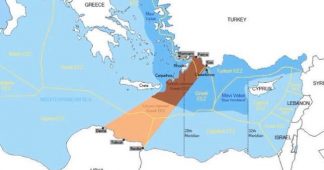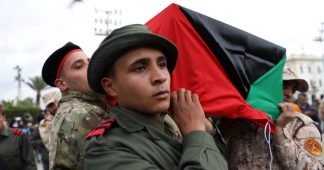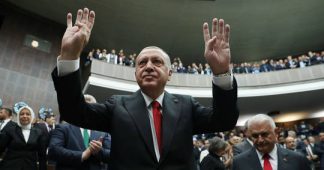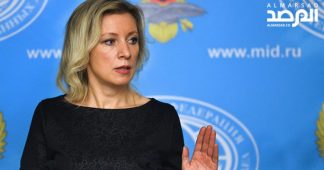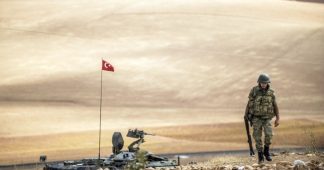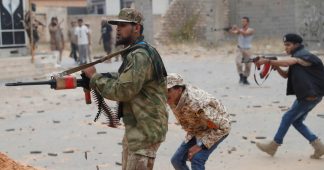It is not so difficult for the political-military observers to realize that Ankara is making great mistakes in the Eastern Mediterranean via providing unsparing military supports for the Government of National Accord (GNA) in Libya for economic interests, trying to confront Greece and Cyprus for hydrocarbon deposits, driving a wedge amongst the European nations to revenge on the EU, and resorting to military meddling in northern Syria to gain upper hand against Russia in the region.
published By Tehran Times
May 5, 2020
A report by Ali Demirdas, a senior political analyst, has revealed that how Turkey has orchestrated its foreign policy in the Eastern Mediterranean.
“Whereas the entire world seems to have turned in on itself trying desperately to deal with the COVID-19 pandemic, interestingly Turkey’s foreign policy is displaying signs of an outward dynamism,” Demirdas wrote in his report published by Anti-War.
In Libya, for example, in early April, the Turkish-backed, and the United Nations-recognized Government of National Accord (GNA) struck a serious blow against the rebel warlord Khalifa Haftar’s Libyan National Army (LNA). The GNA captured strategic cities of Surman, Sabratha and al-Ajaylat in West Libya.
The GNA victory came at a time when Haftar had become the most likely winner of the now 6-year old Libyan civil war since his forces captured the strategic coastal town of Sirte in January, a vital outlet to the Mediterranean Sea for Libya’s oil export.
Turkey’s deep involvement in the Libyan civil war is closely related to Ankara’s perception that Greece and the Greek Cypriots are trying to divide up the Eastern Mediterranean, rendering Turkish maritime navigation difficult without Greek consent.
Furthermore, the lucrative hydrocarbon deposits around the island of Cyprus, Ankara posits, would be exploited ignoring the island’s Turkish population.
France, Russia, and the United Arab Emirates (UAE) have also thrown their political and material support behind Haftar. By propping up a pro-Turkish government in Libya, Ankara hopes to save the maritime deal it signed with GNA prime minister Fayez al-Sarraj , and spoil any plan in which it is not included.
Turkey’s recent critical gains in Libya are the direct result of the anti-Turkey coalition being rendered debilitated by a variety of factors closely associated with COVID-19. Simply put, Turkey, which has fared the pandemic relatively unharmed, used this opportunity to advance its interests in Libya.
The UAE, Haftar’s main financial backer, has been hit hard by the all-time low oil prices due to plummeting demand because of COVID-19, which has made its involvement in Libya even more costly. Abu Dhabi announced on April 20 that it had borrowed $7 billion to counter slumping oil prices.
Moreover, for Russia, as if having to fund its costly involvements in Syria and Ukraine as well as the constricting U.S. sanctions were not enough, the plummeting oil prices and the ruble’s simultaneous nosedive has had Moscow reevaluate the purpose of its Libya commitment.
The withdrawal from Libya of the majority of forces from the Russian paramilitary group Wagner corresponded with the beginning of the declining oil prices in late February.
“Syria has become Putin’s headache,” says Alexander Shumilin, a former Russian diplomat who runs the state-financed Europe-Middle East Center in Moscow. Finally, Putin’s abrupt decision to pull the Russian oil giant Rosneft from Venezuela in March is a clear sign of Russia being overstretched.
French President Emmanuel Macron has thrown his support behind Haftar with the conviction that a pro-French authoritarian regime in Libya would facilitate Paris’s policies towards its former colonies in North and West Africa.
However, a series of predicaments have forced Paris to recalibrate its African policies. The signs of France getting bogged down in West Africa abound. The French military’s mounting casualties in Operation Barkhane, which it started in the Sahel in 2014 with some 5,000 troops, is obstructing Paris’s ability to fully commit in Libya.
In November 2019, two French helicopters in pursuit of militants in Mali collided, killing all 13 French soldiers aboard. To make things worse for France, its only nuclear-powered aircraft carrier Charles De Gaulle, which it has used as a deterrent against Turkey’s naval and air advances in Libya, is currently out of commission as more than 1,000 French sailors are believed to be infected with COVID-19. Having been hit hard by the pandemic at home, coupled with the ever-increasing mission creep in the Sahel, France has shifted its priority away from Libya.
Turkey has seemingly seen this as a window of opportunity. Last week, in an unprecedented show of resolve, it sent 11 F-16s accompanied by refueling, early warning radar, and other support aircraft to Haftar controlled airspace in a clear message that Turkey is ready to escalate its involvement in Libya.
Turkey has over the past year shipped a multitude of weapons including drones, armored vehicles, electronic warfare tools, laser weapons, and other arms and ammunition to the GNA. Of these, the low cost but extremely effective armed drones are rapidly changing the face of the Libyan battlefield. With the help of Turkey’s proven armed drone supremacy, Sarraj’s militia inflicted serious damage on Haftar, turning the tide in Libya.
Turkey has further scored points in its foreign policy by sending, in early April, medical supplies to Italy and Spain, two of the most important Mediterranean countries, of which Ankara would very much want to see on its side against the France-Greece block. Ankara’s gesture came at a time when Italy and Spain had been imploring the European Union for supplies, only to get a cold shoulder from Brussels. The situation further eroded when France confiscated much-needed masks, some six million, destined for Italy and Spain.
Even before the pandemic outbreak, Italy had moved closer to Turkey’s Libya policies, expressing its support for Sarraj and voiced concern with Macron’s support for Haftar.
It appears the COVID-19 pandemic has bestowed Turkey with favorable foreign policy opportunities by reducing the ability of its rivals to meaningfully sway Ankara’s advancements in the East Mediterranean, particularly in Libya and reinforce its position vis-a-vis the European Union. One should expect a more active foreign policy of Ankara in the post-COVID19 era.
MJ
